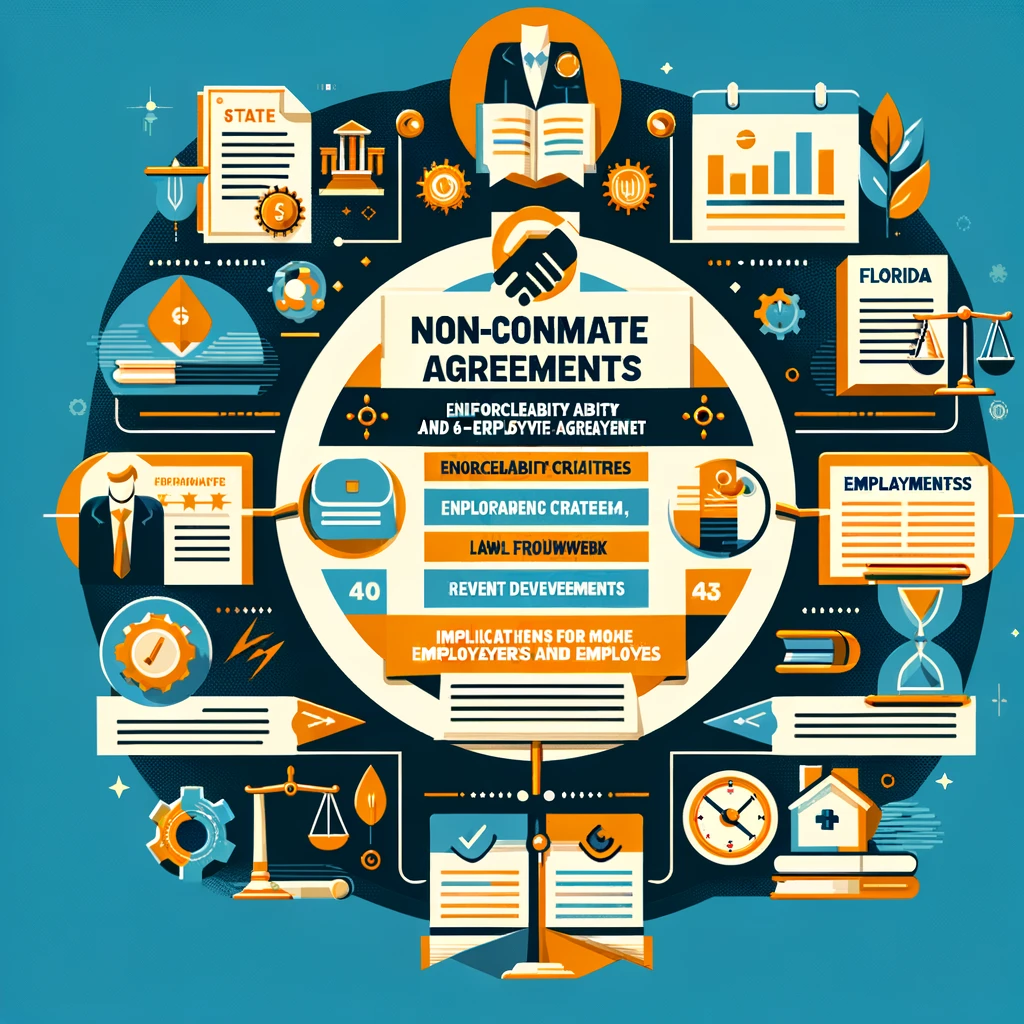The Comprehensive Guide to Non-Compete Agreements in Florida

Non-compete agreements in Florida are a critical tool for businesses looking to protect their interests, but they also raise important considerations for employees. This detailed guide explores the legal landscape surrounding non-compete agreements in the Sunshine State, providing both employers and employees with the knowledge needed to navigate these complex contracts.
Understanding Non-Compete Agreements
Non-compete agreements, or covenants not to compete, are contracts where an employee agrees not to enter into or start a similar profession or trade in competition against the employer. These agreements aim to protect the employer's legitimate business interests, including trade secrets, confidential information, and goodwill.
Legal Basis in Florida
In Florida, the enforceability of non-compete agreements is governed by Florida Statutes, Section 542.335, which specifies conditions under which these agreements are considered valid and enforceable. The statute emphasizes the need for such agreements to be reasonable in time, area, and line of business.
Key Elements for Enforceability
For a non-compete agreement to be enforceable in Florida, it must:
Protect legitimate business interests as defined by the statute.
Be reasonable in terms of geographic scope and duration.
Not impose undue hardship on the employee.
Be supported by a legitimate business reason.
The statute provides a framework for what constitutes "reasonable" in terms of duration and geographical limitations, typically favoring shorter durations and specific, defined geographic areas.
Protecting Legitimate Business Interests
Florida law is clear on what constitutes legitimate business interests, including but not limited to:
Trade secrets (Uniform Trade Secrets Act - Florida)
Valuable confidential business or professional information that does not qualify as a trade secret
Substantial relationships with specific prospective or existing customers, patients, or clients
Customer, client, or patient goodwill associated with an ongoing business or professional practice, by geographic location or marketing or trade area
Extraordinary or specialized training
Duration and Geographic Scope
The reasonableness of duration and geographic scope can vary significantly depending on the industry and the role of the employee. Generally, Florida courts have upheld non-compete agreements ranging from six months to two years, provided they serve to protect the employer's legitimate business interests without imposing undue hardship on the employee.
Legal Challenges and Considerations
While non-compete agreements are enforceable in Florida, they are subject to scrutiny. An agreement that is overly broad in its restrictions may be partially enforced or modified by a court to protect the employee's right to work while still safeguarding the employer's legitimate business interests.
Recent Developments
The legal landscape regarding non-compete agreements is subject to change due to legislative updates and judicial decisions. Employers and employees must stay informed about recent developments that may affect the enforceability of these agreements. Consulting legal databases such as LexisNexis or academic resources like those provided by The Florida State University College of Law can offer valuable insights into current trends and legal interpretations.

Create & Review Your Contracts 10x Quality and Ease
Lawyer-level AI handles all your contract needs, with real lawyers providing safeguarding support

Conclusion
Non-compete agreements in Florida serve as a vital mechanism for protecting businesses but require careful consideration to balance the interests of employers and employees. By adhering to statutory requirements and ensuring agreements are reasonable and necessary to protect legitimate business interests, parties can effectively navigate the complexities of non-compete contracts.
For the most accurate and current information regarding non-compete agreements in Florida, it's advisable to consult with legal professionals or refer to .gov and .edu resources specific to Florida's laws and regulations.

